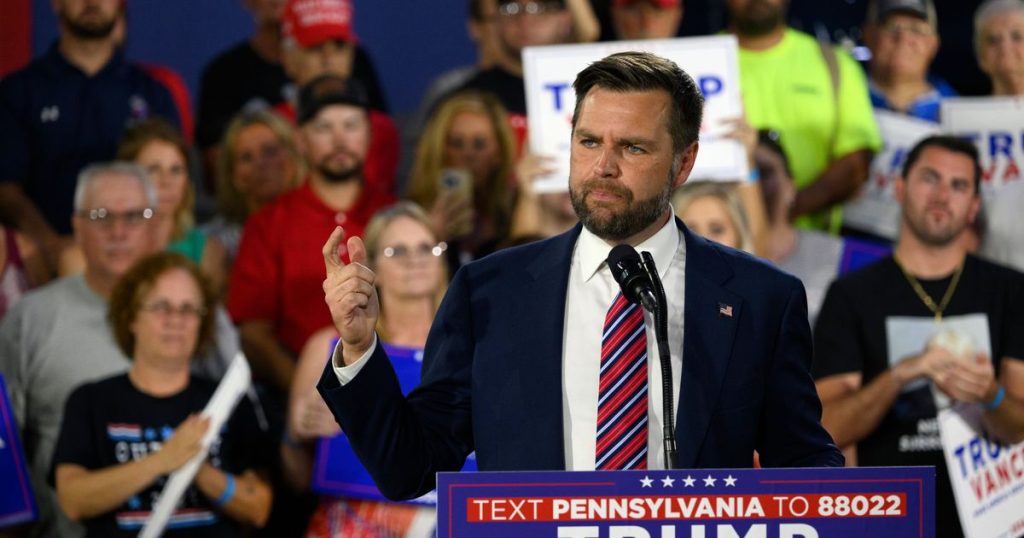Republican vice presidential candidate JD Vance made caustic remarks towards Democratic presidential nominee Kamala Harris, stating that she “can go to hell” in response to questions about an altercation at Arlington National Cemetery. Vance defended former President Donald Trump’s presence at the cemetery, saying he was invited by family members of service members killed in Afghanistan in August 2021. The comment was made during a campaign event in Pennsylvania, where supporters chanted “USA! USA! USA!” Despite being known for his insulting rhetoric, Vance’s harsh words towards Harris stood out as one of the cruder public condemnations of a political opponent this year.
Trump has also made derogatory comments about Harris, calling her “dumb” and insinuating that she used sexual favors to advance her political career. Harris and her running mate, Tim Walz, responded by calling Republicans “out of their minds” and describing Vance as “weird” and “creepy.” Despite these statements, Harris did not comment on the cemetery incident as suggested by Vance. When asked about it, Vance dismissed it as media exaggeration and shifted the focus to allegations against Walz regarding misstatements about his military service.
In addition to his comments towards Harris, Vance has a history of making rude remarks. In 2021, he referred to Harris and other prominent Democrats as “a bunch of childless cat ladies who are miserable at their own lives and the choices they’ve made.” Vance’s controversial statements have sparked criticism and backlash from those who find his language disrespectful and inappropriate. While political campaigns are often marked by heated rhetoric, Vance’s comments stand out for their harshness and personal attacks.
The escalating tensions between the Republican and Democratic camps have contributed to a growing divide in the political landscape. Insults and inflammatory remarks have become a common occurrence in political discourse, with both sides engaging in verbal attacks and character assassination. The lack of civility and respect in political communication has raised concerns about the state of democracy and the ability to have constructive dialogue and debate.
Vance’s comments reflect a broader trend of increasing polarization and hostility in the political sphere. The demonization of political opponents and resorting to name-calling and personal attacks only serve to deepen divisions and undermine the democratic process. As political campaigns become more contentious and combative, the focus shifts away from substantive issues and policy discussions, further eroding trust in government and institutions.
In order to foster a more civil and respectful political environment, it is important for leaders and candidates to refrain from making derogatory and inflammatory remarks. By promoting respectful dialogue and engaging in constructive debates, politicians can set a positive example for the public and work towards finding common ground on important issues. In a time of heightened political tensions, it is crucial for individuals to prioritize civility and mutual respect in order to bridge divides and promote understanding and cooperation.








